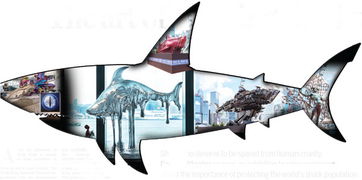Content:
As the sun dips below the horizon, casting your line into the serene waters becomes more than just a hobby; it's an art form. Whether you're a seasoned angler or a beginner looking to hook your first big catch, mastering the skill of fishing around is essential. Here's a comprehensive guide to help you perfect your technique and increase your chances of landing that prized fish.
Understanding the Basics
Before diving into the nitty-gritty of fishing techniques, it's crucial to understand the basics. Here are some fundamental points to consider:
Choose the Right Equipment: Your fishing success largely depends on the quality of your gear. Select a rod, reel, and line that match the type of fish you're targeting and the conditions of the water.
Know Your Fish: Different fish species have varying preferences for bait and lures. Research the species you're targeting to understand their habits and preferences.
Understand the Water: Familiarize yourself with the water body you're fishing in. Observe the currents, depth, and structure to determine the best spots to cast.
Casting Techniques

Casting is the act of throwing your line into the water. Here are some essential casting techniques to help you fish around effectively:
Overhand Cast: This is the most common casting method. Hold the rod with both hands, extend it over your shoulder, and sweep it forward to release the line.
Sidearm Cast: Ideal for casting over obstacles or into tight spots. Hold the rod with one hand near the reel and swing it horizontally away from your body.
Backcast: Use this technique to cast a long distance or to reach areas behind you. Swing the rod back over your shoulder and then forward.
Toss Cast: Useful for casting lures or small baits. Hold the rod in one hand and use a flicking motion to propel the line forward.
Advanced Casting Tips
Once you've mastered the basic casting techniques, here are some advanced tips to enhance your fishing around skills:
Accuracy: Practice casting to a specific target to improve your accuracy. This is crucial for placing your bait or lure in the fish's feeding zone.
Line Control: Learn to control the line tension to avoid snags and maintain a natural presentation. Adjust your grip and casting motion to manage the line effectively.
Adaptability: Be prepared to adapt your casting technique based on the conditions. Wind, water currents, and terrain can all affect your casting, so be ready to adjust accordingly.
Bait and Lure Selection
The choice of bait or lure can make or break your fishing experience. Here are some tips for selecting the right one:
Natural Bait: Use live or dead bait that matches the species' natural food source. This can include worms, insects, or small fish.
Artificial Lures: Artificial lures mimic the movement of natural prey and can be highly effective. Choose lures that match the size and color of the fish you're targeting.
Experimentation: Don't be afraid to try different baits and lures. Sometimes, the fish might be in a mood that favors a particular type of bait.
Fishing Around the Water's Edge
Fishing around the water's edge can be highly productive. Here are some tips for success:
Spot Selection: Look for areas where the water meets the shore, such as docks, rocks, or grassy banks. These spots often attract fish looking for food or cover.
Timing: Fish are more active during certain times of the day. Early morning and evening are typically the best times for fishing around the water's edge.
Patience: Wait for the fish to come to you. Casting repeatedly without seeing any action can be frustrating, but patience often pays off.
Safety and Etiquette
Always prioritize safety and etiquette when fishing around:
Respect the Environment: Keep the area clean and dispose of trash properly. Be mindful of your surroundings and avoid disturbing wildlife.
Follow Local Regulations: Adhere to fishing laws and regulations, including size and catch limits.
Be Considerate of Others: Share the fishing spots and be respectful of other anglers' space and equipment.
In conclusion, fishing around requires a combination of skill, knowledge, and patience. By mastering the basics, refining your casting techniques, and understanding the habits of the fish you're targeting, you'll be well on your way to becoming a proficient angler. Remember to enjoy the experience and respect the natural beauty of the water you're fishing in. Happy fishing!












